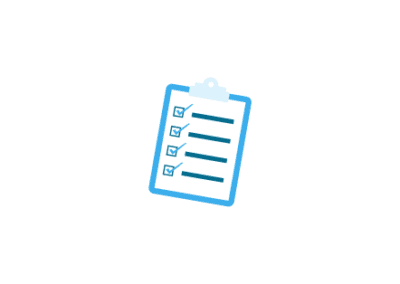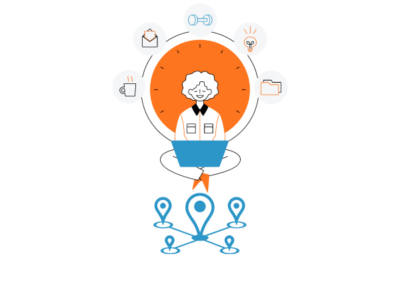Organization
TELUS World of Science
TELUS World of Science in Edmonton, Alberta, is a bustling center that offers interactive programs and exhibits to enhance visitors’ enjoyment of science and technology. Opening its doors in 1984, the science center now features:
- A planetarium,
- An IMAX theater,
- A computer lab,
- And six galleries for science exhibits.
Location: Edmonton, Alberta, Canada
Industry: Non-Profit
Size: 50-100 employees
Challenges
The science center has 80 full-time equivalent (FTE) staff that do everything from selling tickets at the box office to presenting science programs to school-age children. But like most non-profit cultural institutions, the science center’s budget is limited, and spending is careful.
“We do as much as we can with the resources we have,” says Karin Dowling, the director of Human Resources and a 20-year veteran of the science center. “Being a non-profit, we have to work within our budget guidelines.” Karin points out that the TELUS World of Science earns a significant share of its revenues from admissions and services, unlike similar institutions governments completely fund.
As the science center’s offerings grew over the years, scheduling the staff shifts became a major headache with a limited budget to find the perfect solution.
“As we started to increase our programming, our staffing needs started to increase as well, and it was becoming a challenge to ensure we were able to meet our required staffing levels,” recalls Karin.
Previously, several different departments did their employee schedules with Excel and then posted the file on an employee section of the science center’s website. However, these efforts ran into many limitations. For example, the spreadsheets couldn’t check if a staff member was double-booked between departments. The spreadsheets could also not proactively detect certain employee overtime situations as per the collective agreement, resulting in unnecessary overtime.
On the payroll side, all staff were manually filling out time sheets. “Then our payroll coordinator would have to go through and decipher what they were doing, and code it all into our accounting system,” says Karin. She thought that a more up-to-date process would simplify all these tasks. So, she started looking for a system to reduce the headaches of doing employee schedules and tracking payroll.
Solution
Karin looked at everything on the market for employee scheduling. But most of the software she found was clearly unsuitable for a science center. “Most of our staffing requirements are based on our programming, so if we have a heavy week on programming, we have to increase our staffing,” she explains.
She found that many scheduling systems didn’t work that way but simply assigned every employee a specific number of hours per week. That wasn’t nearly flexible enough. Her system also needed to tell who was trained for specific tasks, such as operating the IMAX theater, leading demos, or giving science presentations for schools.
“We offer about 70 different programs that we can present to schools. If a staff member hasn’t been qualified to present a certain program, we can’t afford to make the mistake of scheduling them to present it,” says Karin.
Eventually, there were only two vendors left on her shortlist. And the other one was several times more expensive than Celayix. The science center chose Celayix, with an Amano electronic card reader to serve as a time clock at the front door. “Celayix did what we wanted, and the price was reasonable,” she says.
Using Celayix, the science center was able to streamline the employee scheduling process with enterprise scheduling software and an electronic time clock system.
Before Celayix we may not have realized that there wasn’t enough available staff to work a specific day of the week. Now any gaps in our staffing are glaring at us, so we can see that and hire appropriately.”
Karin Dowling, Director of HR
Results
Elimination of scheduling errors like double booking and gaps in coverage
Although Celayix was intended for use in one department, it’s now used by six different departments, with about 15 people involved in making or approving employee schedules. Each department still makes up its own employee schedules, but the new system keeps track of every staffer. That means no more double-booking by different departments.
What’s more, any gaps in the employee schedule are now very obvious. “Before we may not have realized that there wasn’t enough available staff to work a specific day of the week. Now any gaps in our staffing are glaring at us, so we can see that and hire appropriately.” And the new system saves Karin time chasing down various managers to ask them questions.
“Being in Human Resources, I’ve got information now that I can just pull up on the screen. I can see what’s happening, so it’s a great system in that way.” Analysis of staffing situations was very difficult in the past; it was very time-consuming to sort through, organize, and summarize archived paper information. “Now we can just run reports, and there are the results,” says Karin.
Reduced overtime costs
Celayix helps identify any overtime so managers can review and correct it before the schedule goes out. “It really has cut down on human errors, and on the amount of manual calculations people were doing,” she says.
“Our time clock at the entrance has worked out well,” says Karin. “Now all our staff come in and just swipe their tags, and they’re on the floor. We don’t have to worry about paper time-sheets anymore.”
Since the science center’s mission is to encourage interest in science and technology, it’s fitting that it now uses technology to manage its employee schedules, saving time and avoiding confusion in the process. Contact our sales staff today if your company is looking for a customizable solution for your scheduling needs.



